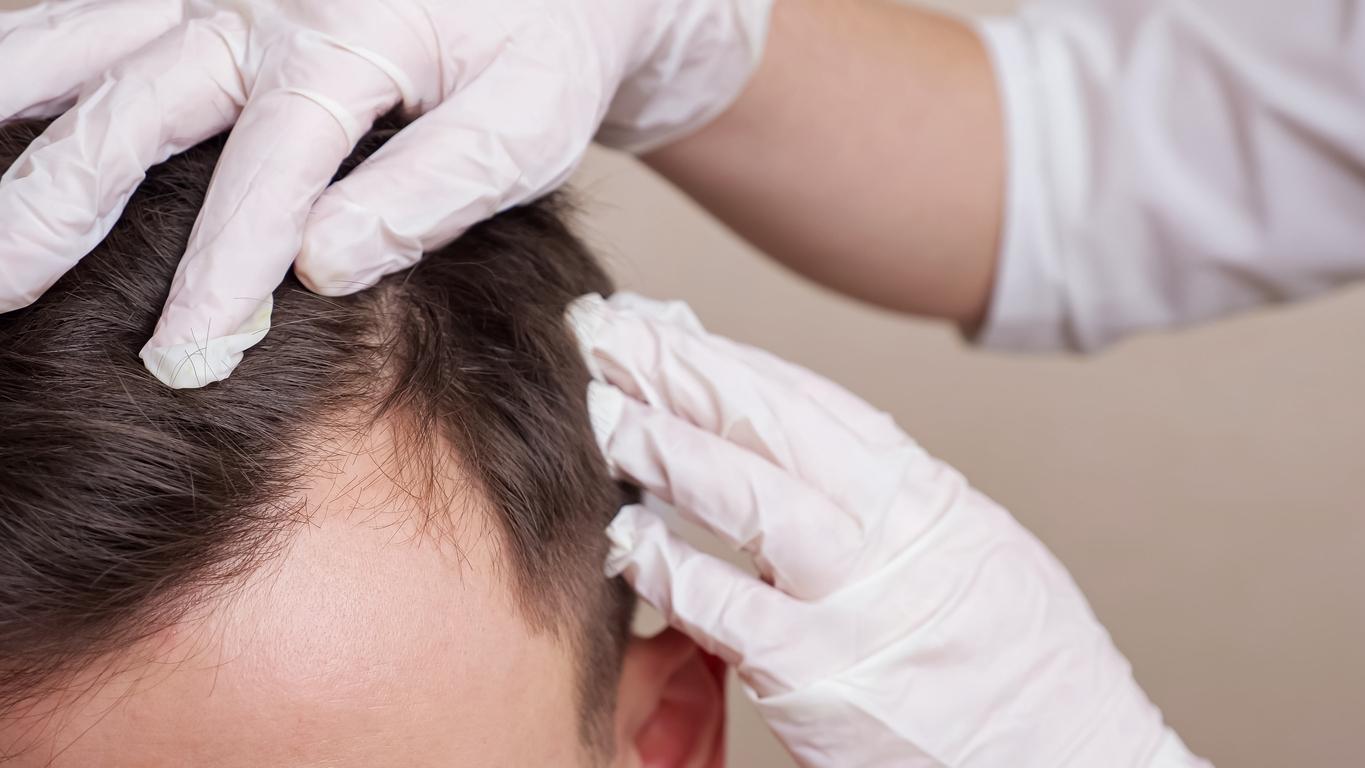Researchers have discovered that a sugar naturally produced by the body could hold the key to a new treatment for hair loss in men.

- The cure for male pattern baldness may lie in a sugar that occurs naturally in the human body: deoxyribose, or 2-deoxy-D-ribose (2dDR), researchers say.
- In mice, applying a small dose of deoxyribose helped form new blood vessels, which led to stimulated hair regrowth.
- “This natural sugar was as effective in regrowing hair as Minoxidil, a drug already used to treat hair loss,” according to a statement.
The cure for male pattern baldness, a condition that affects up to 50% of men worldwide, may lie in a sugar that occurs naturally in the human body: deoxyribose, or 2-deoxy-D-ribose (2dDR). At least that’s what a team of researchers from the University of Sheffield (UK) and COMSATS University (Pakistan) suggest in a study published in the journal Frontiers in Pharmacology.
Deoxyribose led to hair regrowth in mice
Through previous experiments on mice, the scientists discovered that the sugar compound in question, which plays a fundamental role in various biological processes in animals and humans, could help repair wounds by promoting the formation of new blood vessels. But they also noticed that hair around healing wounds appeared to grow faster than those that had not been treated.
To study this phenomenon more closely, the researchers created a model of testosterone-induced hair loss in mice, similar to the cause of androgenetic alopecia. As a result, the team found that applying a small dose of deoxyribose helped form new blood vessels, which led to hair regrowth in the rodents. “This natural sugar was as effective in regrowing hair as Minoxidil, a drug already used to treat hair loss.”we can read in a press release.
A good candidate for treating baldness in men
If the research is still at “a very early stage”, the results are “promising”scientists believe. “Treating hair loss could become as simple as using a naturally occurring deoxyribose sugar to stimulate blood flow to hair follicles and thereby encourage hair growth. […] Especially since this sugar is natural, inexpensive and stable, and we have shown that it can be delivered from a variety of gels or dressings. This makes it an excellent candidate for treating hair loss in men.”
As a reminder, no less than 13% of French people say they suffer from baldness, according to an Ifop survey. At any age, this phenomenon affects more men (25% before 65 years and 31% after) than women (2% then 3% after 65 years). The most common cause of baldness is androgenetic alopecia, which results from two factors: a genetic predisposition (the X chromosome, transmitted to men by their mother) and the action of androgens, male sex hormones but which are also present in women.














